B Raman
Senior analyst B Raman on how India should react to 26/11 accused David Headley's testimony in co-accused Tahawwur Hussain Rana's ongoing trial in a Chicago court.
The detailed testimony of David Coleman Headley of the Chicago cell of the Lashkar-e-Tayiba in the case against Tahawuur Hussain Rana and some others being tried in absentia before a Chicago court has received considerable attention in India and Canada.
However, the attention received in Pakistan is limited. The focus in Pakistan seems to be more on his (Headley's) credibility as a witness. Questions posed by the defence lawyer of Rana relating to Headley's background as a narcotics smuggler and his alleged unreliability in money matters have received greater attention in Pakistan than in India. I do not know how the Danish press has been covering the trial.
There are two principal charges against Rana relating to his role in the criminal conspiracy to provide material support for the 26/11 terrorist strikes in Mumbai, which materialised, and a planned terrorist strike in Denmark, which did not materialise.
...
This is a case against Rana and not Headley
Image: Tahawwur RanaThe material support provided by Rana was in the form of purchase of air tickets for Headley, allowing Headley to pose as a member of the staff of Rana's immigration consultancy firm during his travels to India and Denmark and allowing him to open an office of Rana's firm in Mumbai to facilitate the collection of operational intelligence required by the Inter-Services Intelligence and the LeT for the execution of the terrorist attacks in Mumbai.
Whatever evidence Headley has given in his testimony combined with other evidence such as telephone and e-mail intercepts independently collected by the Federal Bureau of Investigation having a bearing on the charges against Rana will definitely be taken into consideration by the court and the jury in deciding on the guilt or otherwise of Rana.
This is a case against Rana and not against Headley. The case against Headley in which he has already made a plea bargain has not yet come up before a court. The FBI has apparently kept it for later to ensure that Headley would co-operate in getting Rana, his close friend, convicted. Headley has been co-operating till now.
US has taken no action to pressurise Pakistan
Image: Mumbai's Taja Mahal Hotel under terror siege during 26/11 attacksPhotographs: Punit Paranjpe/Reuters
Rana is only a co-conspirator in the case. The principal conspirators are Sajid Mir, Abu Qahafa, Mazhar Iqbal, Major Iqbal, Ilyas Kashmiri and Major Abdur Rehman Hashim Syed alias Pasha.
While the principal conspirators, all based in Pakistan, have been cited by the FBI as co-accused, no action has been taken by the FBI to pressure the government of Pakistan to arrest them and hand them over to the FBI so that they could be tried along with Rana and Headley.
No explanation has been forthcoming so far as to why no action has been taken by the FBI to make Pakistan hand them over for trial in Chicago.
A careful study of the proceedings of the trial against Rana since it started on May 23 would indicate a two-pronged strategy by the FBI:
Encouraging Headley to testify in detail regarding the role of the ISI and the LeT without holding back any thing in order to satisfy India and convince it that there would be no attempt to cover up the role of the ISI.
Not exercising pressure on Pakistan to arrest the persons named by Headley and to hand them over to the FBI in order to spare any embarrassment to the government of Pakistan.
Will the second prong of the FBI's strategy succeed by sparing the government of Pakistan of any embarrassment because of the disclosures of Headley regarding the involvement of the ISI?
This would depend upon the way the prosecution lawyer and the judge sum up the proceedings for the benefit of the jury when all the testimonies are over. If they focus only on the evidence relevant to the charges against Rana, they might succeed. On the contrary, if they also focus on the charges against the absconding accused being tried in absentia, it might not.
What are the action options for India?
Image: Pakistan's Prime Minister Yusuf Raza Gilani looks on as he attends a signing ceremony at the Great Hall of the People in BeijingPhotographs: Jason Lee/Reuters
Draw the attention of the Terrorism Monitoring Committee of the United Nations Security Council in terms of the UNSC Resolution No 1373 passed after the 9/11 terrorist strikes in the US and ask for action against the ISI for violation of the UNSC resolution.
The UNSC Resolution has re-affirmed the principle established by the General Assembly in its declaration of October 1970 (resolution 2625 (XXV)) and reiterated by the Security Council in its resolution 1189 (1998) of 13 August 1998, namely that "every State has the duty to refrain from organising, instigating, assisting or participating in terrorist acts in another State or acquiescing in organised activities within its territory directed towards the commission of such acts."
The testimony in the case against Rana has clearly shown a serious violation of this resolution by the ISI which should be held accountable.
Indian action may not succeed because of a possible Chinese veto in support of Pakistan, but that should not deter us from bringing the evidence to the notice of the UNSC Monitoring Committee.
India should insist on trial of ISI officers in US
Image: NSG commandos look down after explosion on fourth floor of Nariman House in Mumbai during 26/11 terror strikesPhotographs: Punit Paranjpe/Reuters
The US insisted on the trial of the Libyan intelligence officers involved and the payment of compensation to the families of the victims by the Libyan government. It succeeded on both counts.
The government of India should immediately set up a task force to study how the US handled the Lockerbie case and follow the same procedure in this case.
The relatives of the victims -- whether Indian or foreign nationals -- should be closely associated with the work of the task force. The government of India should insist on the trial of the ISI officers involved before the Chicago court and the payment of compensation to the relatives of the victims by the government of Pakistan.
Re-energise our case for the declaration of Pakistan as a state-sponsor of international terrorism by the US State Department on the basis of the evidence adduced in the trial.
The State Department will avoid doing it as it did after the Mumbai blasts of March 1993, but that should not deter us from taking up the case against Pakistan vigorously once again.

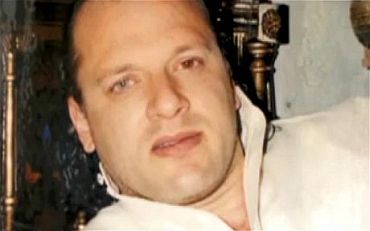
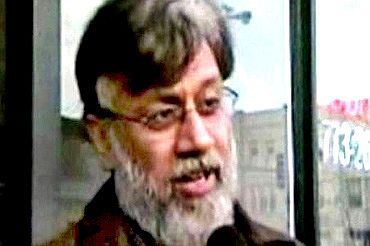
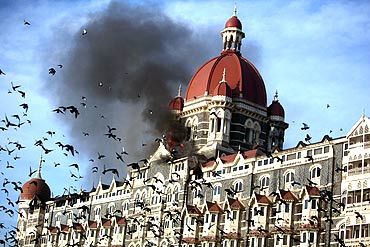
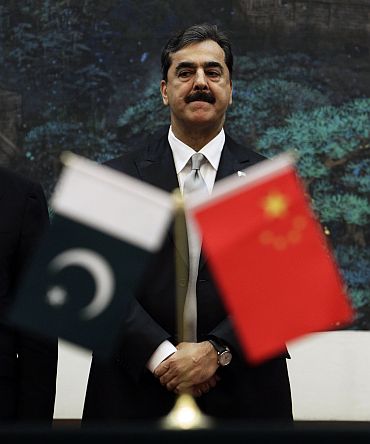
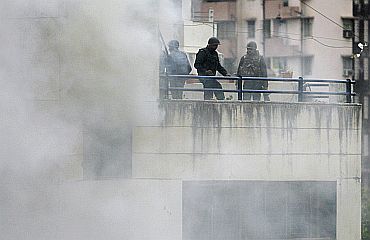
article